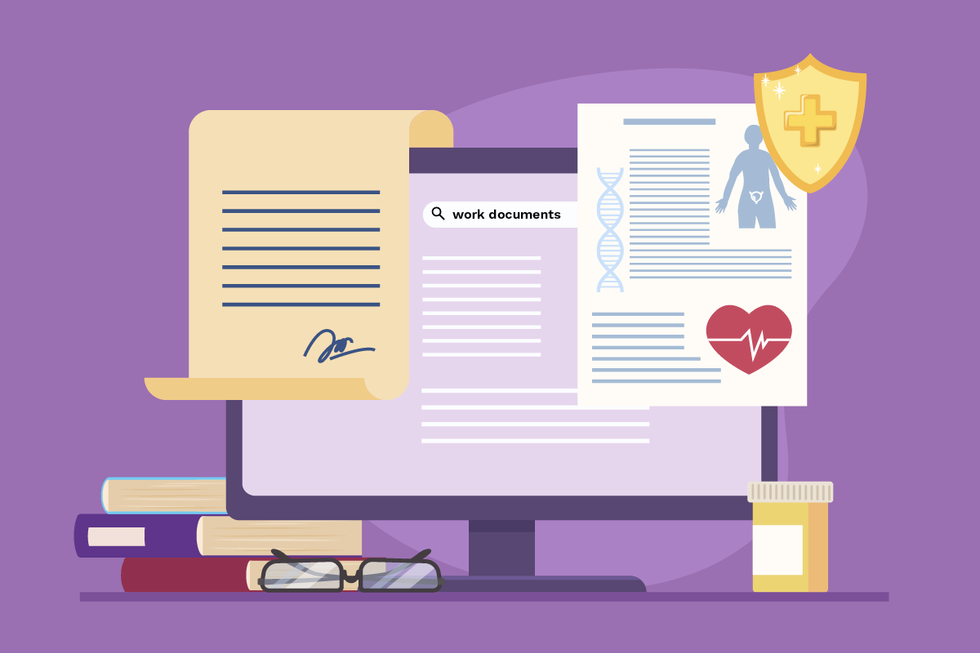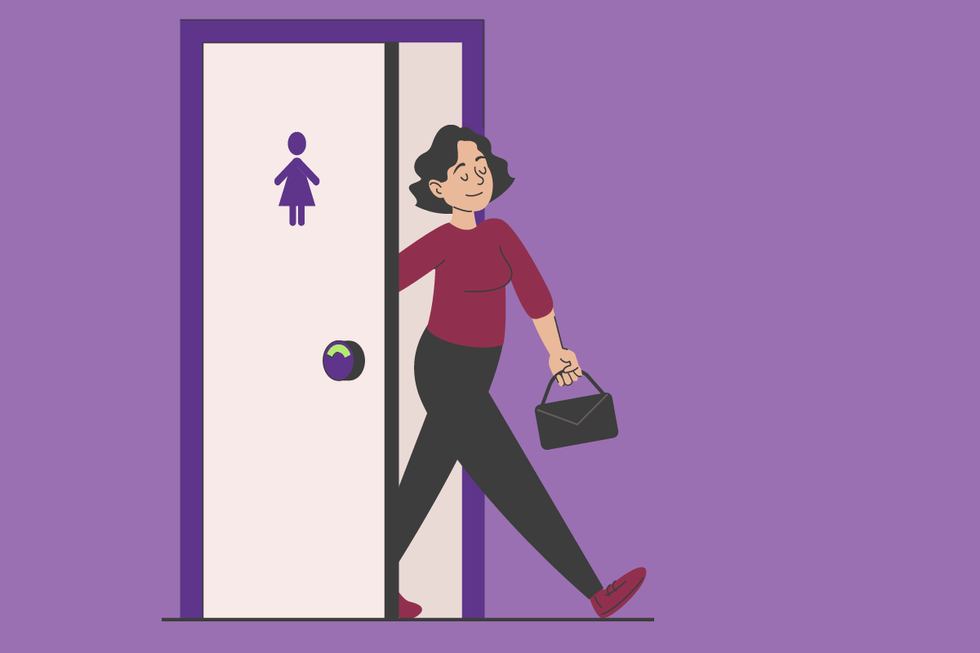
[adinserter block=”3″]
“You have bladder cancer.”
While it can feel like the world stops the moment you hear these words, life does go on — and sometimes that means going back to work. Whether you’re thinking about continuing to do your job through treatment or going back afterward, there are things you can do to make it easier.
Talk to your healthcare provider
If you know returning to work during or after bladder cancer treatment will be a priority for you, it’s worth letting your cancer care team know. While most of your treatment plan will depend on how invasive or aggressive your bladder cancer is, healthcare providers (HCPs) can also take your desire to work into consideration, said Eila Skinner, M.D., a urologic oncologist and professor of urology at Stanford Health Care in Stanford, California.
“The majority of people with bladder cancer actually have outpatient surgery and/or treatments put into the bladder,” Skinner said. “So patients need time off work for each treatment, but they don’t necessarily have a big effect on their ability to work.”
She added that more complicated treatments such as bladder removal, radiation or chemotherapy may make working more difficult, but that HCPs can still help navigate work issues. “We’ll help you with your employer to figure out how you can get those days off and whatever documentation you need,” Skinner said.
Many patients also have the option of talking with a social worker at the treatment center about making a back-to-work plan. These social workers can also point patients toward supportive services.
Know your legal rights

If you need to take time off for treatment or other reasons related to your bladder cancer, you may be eligible for unpaid leave under the federal Family and Medical Leave Act (FMLA). According to FMLA, people with cancer can take up to 12 weeks of unpaid, protected leave per year if you:
- Worked for your employer for at least 12 months
- Worked at least 1,250 hours (about 25 hours per week) over the past 12 months
- Work at a location with 50 or more employees within 75 miles of your home
FMLA leave can be taken all at once or in shorter chunks. You can also reduce your daily hours or work part time for a while.
People with cancer (or a history of cancer) may also qualify for legal protection under the Americans with Disabilities Act (ADA), a federal law that prevents discrimination against people with disabilities. This is because the ADA considers “disabilities” to include any impairment that substantially limits a major life activity or a history of this type of impairment.
According to the ADA, employers should evaluate employees with cancer based on their skills, knowledge and experience, as well as how the disease affects them. They should not make decisions about employees with cancer because of fear or stereotypes about cancer.
For example, an employer can’t demote a person going through treatment for bladder cancer because they’re worried that job stress will make the cancer worse.
The ADA also requires employers to offer workplace adjustments (called reasonable accommodations) to people with cancer so that they’re able to continue doing their jobs.
In addition to these federal protections, your human resources department can answer questions about employer-specific policies related to:
- Short- and long-term disability
- Insurance
- Sick and flex time
Ask about accommodations

Once you’ve let your employer know about your bladder cancer, you can ask for accommodations that will make it easier for you to work during and after treatment. Some ADA-covered accommodations include:
- Extra/extended breaks
- A private area to rest and take medication
- Working from home
- Sharing work with a co-worker
Other examples of adjustments that might make working more doable for you are:
- Rearranging your workspace (or moving to a new one)
- Changing your schedule and/or working outside normal business hours
- Temporarily switching to a different job within the company
- Avoiding physical labor
- Making sure you have access to seating when needed
- Taking time off for appointments
The first step toward getting accommodations is finding out what, if anything, you need to provide to your employer. Companies may ask for documentation, such as medical approval or a note from your HCP.
Getting ready to return

Once you’ve set up accommodations, it’s time to get your final ducks in a row. Think about what you want to share with your co-workers about your bladder cancer. Scope out the bathroom situation and access to any private bathrooms, where you can take care of self-catheterization or other needs.
It’s also a good idea to put together an emergency kit for your desk or car in case you’re unexpectedly stuck at work (or in traffic). This kit should contain things like medications, ostomy supplies and anything else you might need.
According to Skinner, the best thing to do is take things day by day.
“I usually tell patients to try not to think too many steps ahead because it’s just not predictable,” she said. “I’m an optimist, so I tell them to be optimistic until given a reason not to be.”
This educational resource was created with support from Astellas, Merck and Pfizer.
From Your Site Articles
Related Articles Around the Web
[adinserter block=”3″]
Credit : Source Post






